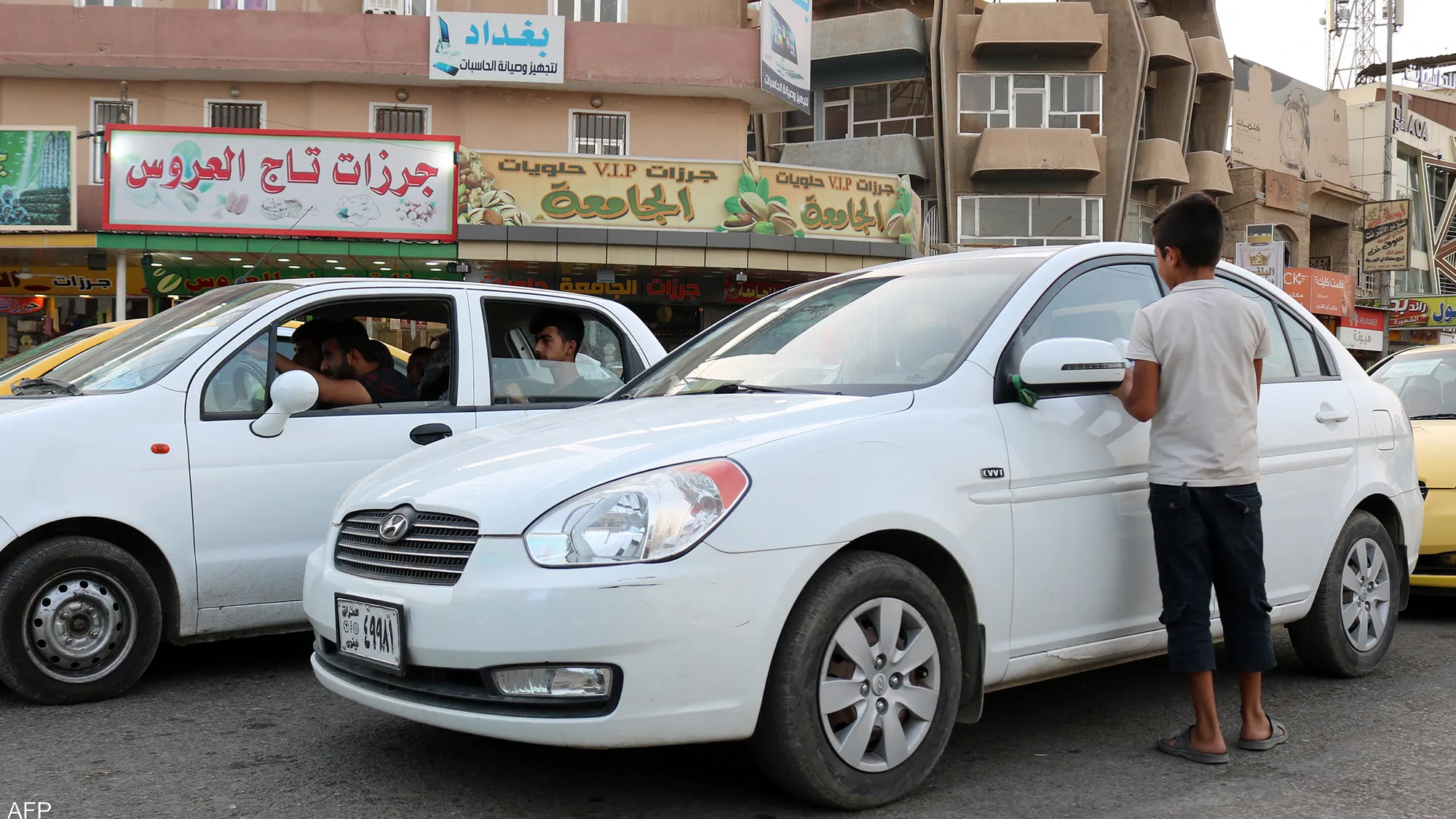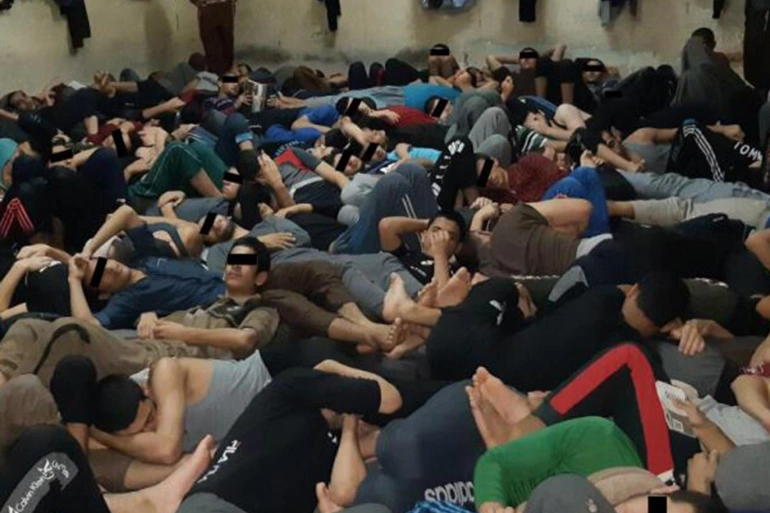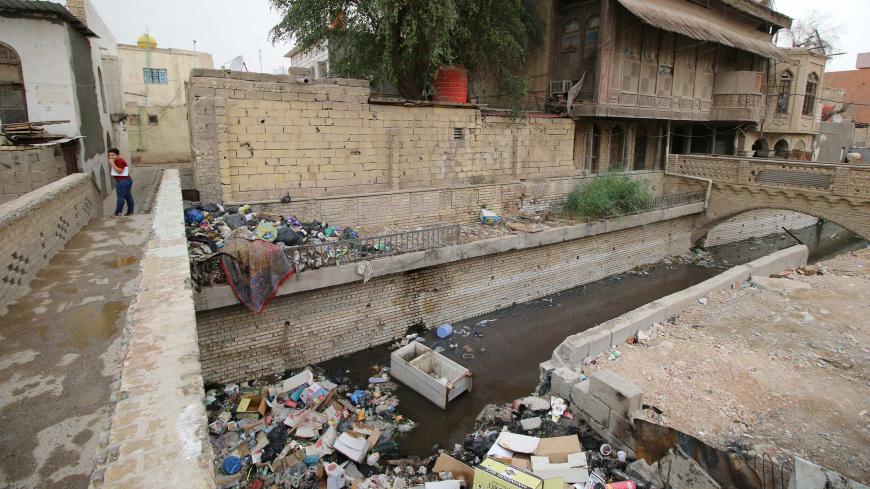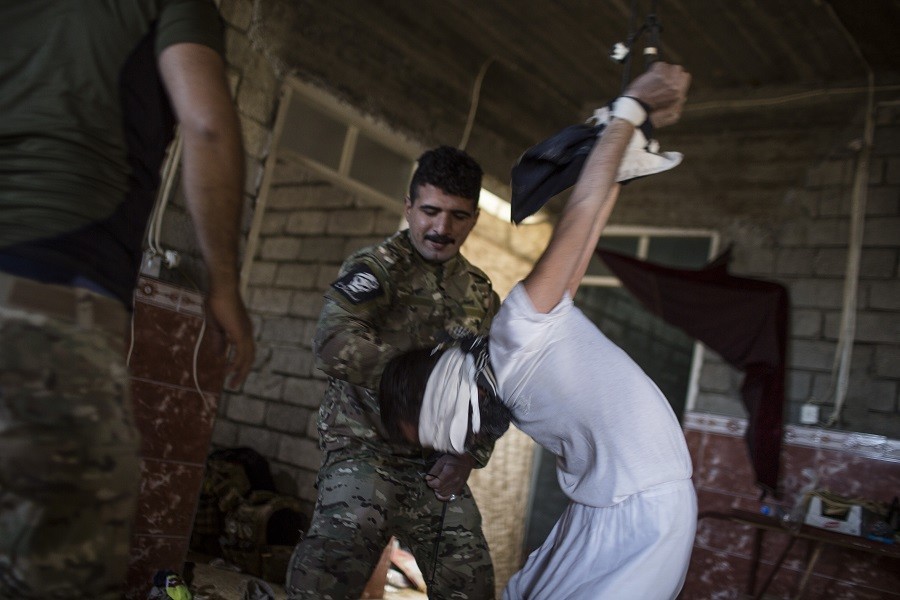The Iraqi Observatory for Human Rights said that unknown and unidentified groups are exploiting children in the Iraqi capital Baghdad by trading them through begging, which is aggravated daily in capital streets without government solutions.
The observatory said, "On one street in Baghdad, at least 13 children are begging or using some behaviour close to begging to clean cars or sell gum."
One UNICEF report indicates that"One out of every five poor children in Iraq has dropped out of school before going to primary school for economic reasons." "Children are the most affected by continued conflict and displacement in Iraq."
He said, "About 40 per cent of displaced families suffer from poverty, and about half of the displaced children in Iraq are out of school, while children living in areas severely affected by violence in Iraq, and more than 90 per cent do not attend school."
The Iraqi Observatory for Human Rights expressed that those children who had dropped out of school and came from areas controlled by ISIS, turned in a few hours to beggars in the streets of the capital, they provide a free service to people and unknown groups.
According to statistics from the Iraqi Observatory for Human Rights, there are 700-800 in the capital Baghdad, where there are between 5-10 children in the intersection, according to a census conducted by a researcher at the observatory.
He said "These children occupy the Karkh and Rusafa intersections and their groups are scattered near bridges, checkpoints, restaurants, markets, temples, colleges and parks, some without education and many of them begging,"
Article 2, paragraph 2, of the Convention on the Rights of the Child, states: "States Parties undertake to ensure to the child the protection and care necessary for his or her well-being, taking into account the rights and duties of his or her parents, guardians or other persons legally responsible for them. To this end, all appropriate legislative and administrative measures shall be taken.
Article 4 of the same Convention states: "States Parties shall take all appropriate legislative, administrative and other measures to give effect to the rights recognized in this Convention." In respect of economic, social and cultural rights, States Parties shall take such measures to the maximum extent of their available resources and, International cooperation".
The Iraqi Observatory for Human Rights met a child named Bader, 12 years old "I read and wrote. I left school in the fifth grade and I have succeeded to the sixth-grade primary, my mother says God compensated me with you instead of your loser father.
The Iraqi Observatory for Human Rights said that "social problems, family disintegration and poverty are all factors that play a negative role in supporting children who are deprived of their independence and their natural learning opportunities that their peers receive."
Ibrahim said, "My mother and aunt took all my money and I have been hungry since the early morning, My mother took my 10,000 Iraqi dinars."
The Iraqi Observatory for Human Rights said that some women beggars deliberately show their children at intersections to win people's empathy but this is a major violation of their rights.
A traffic man at a Baghdad intersection said "These children belong to powerful gangs, no one can talk to them or dismiss them. Security men and gangs are supporting them. This is a commercial operation, not a humanitarian operation,"
he said, adding "Most of the beggars are children, some of them are infants, and even if they are children, they divide the work between them, One time a baby fell from the hand of a beggar under a car frame but the traffic stoppage without him in any danger."
A 28-year-old girl told the Iraqi Observatory for Human Rights: "I preserve my honour and my daughters' honour. So I and my son Saad begged for 7 years, even though I knocked on all doors for service and work at daily wages in houses, businesses and offices, but I don't know any of that. I do not read or write."
the Iraqi Observatory for Human Rights said "People have been begging as a private economy and many of them are run by a network that violates the law and exploits children in ways of abuse, beatings and imprisonment,"
A researcher of the Iraqi Human Rights Watch expressed that ”Today beggars are a real threat to the future of Iraqi social security and these children at the health, educational and even moral levels because they will be tempted to begin the future."
Interior Ministry spokesman Major General Saad Maan said "We are continuing to crack down on beggars, but there is still a need to legislate a law that includes deterrent penalties to curb begging, which has turned into a profession run by illegal groups, exploiting children, the elderly, women and people with physical disabilities to raise money illegally.
One of the new begging techniques monitored by Al Jazeera Net is observing female beggars who carry children to the supermarkets and surprise customers by asking and begging them to buy milk cans only without asking for money. Then they sell milk at a relatively lower price in agreement with other shops.
the Iraqi Observatory for Human Rights said "All relevant governmental and civil institutions must confront and deal with the children begging phenomena and hold accountability to networks that use these children,"
The Iraqi Observatory for Human Rights requested the Iraqi Council of Representatives to enact the Children's Rights Act and to find new legislation to protect the children and keep them away from the conditions they live in now.




